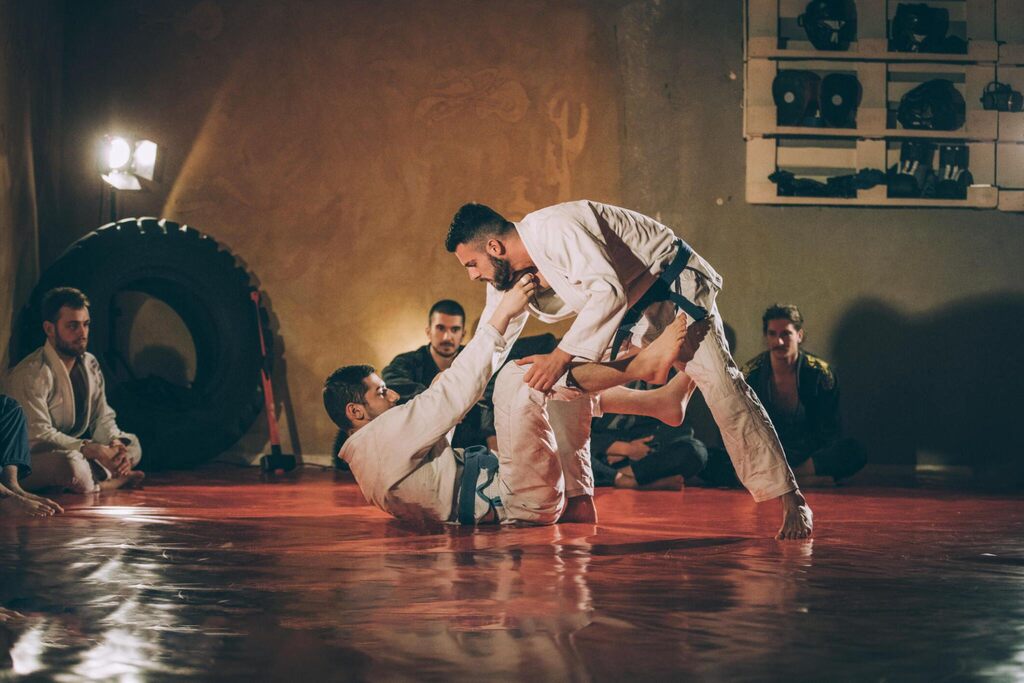In the pursuit of holistic well-being, individuals seek avenues that not only enhance physical fitness but also nurture mental resilience and promote overall health.
Martial arts, with their rich tradition of discipline, focus, and physical conditioning, have emerged as a powerful tool for cultivating wellness.
This article explores the synergy between health education and martial arts training, shedding light on how these practices converge to create a pathway to becoming wellness warriors.
The Intersection of Health Education and Martial Arts
Health education and martial arts may seem like distinct disciplines, but their intersection reveals a powerful synergy that promotes holistic well-being.
In this section, we explore how health education principles integrate seamlessly with martial arts training, creating a pathway to physical fitness, mental resilience, and overall wellness.
Understanding Health Education
Health education encompasses a range of initiatives aimed at promoting health literacy, fostering healthy behaviors, and empowering individuals to make informed decisions about their well-being.
It encompasses topics such as nutrition, exercise, stress management, mental health, and preventive care, providing individuals with the knowledge and skills to optimize their health outcomes.
Exploring Martial Arts Training
Exploring martial arts training opens up a world of physical, mental, and emotional development. Martial arts classes offer not only the opportunity to learn self-defense techniques but also serve as a platform for personal growth and empowerment.
Martial arts encompasses various styles, including karate, judo, taekwondo, kung fu, and Brazilian jiu-jitsu, among others. Whether aiming to enhance physical fitness, boost self-confidence, or cultivate inner peace, martial arts offer a transformative journey toward holistic well-being. Experience the best in martial arts training by joining the esteemed classes at Team Tieu.
Elevate your well-being with expert guidance, blending health education seamlessly with the discipline of martial arts for holistic wellness. Unleash your inner warrior and embark on a journey of physical fitness, mental strength, and personal growth with Team Tieu.

The Benefits of Integrating Health Education with Martial Arts Training
Integrating health education principles with martial arts training offers a holistic approach to personal development, encompassing physical fitness, mental resilience, and overall well-being. Here are some key benefits of this integration:
Physical Fitness and Conditioning
Martial arts training provides a comprehensive workout that targets cardiovascular health, muscular strength, endurance, and flexibility.
By incorporating health education principles such as proper nutrition, hydration, and recovery strategies, practitioners can optimize their physical fitness and performance, enhancing their overall health and well-being.
This integration not only enhances endurance, strength, and flexibility but also fosters habits that support long-term health and performance.
Mental Resilience and Stress Management
The discipline and focus required in martial arts training cultivate mental resilience and emotional well-being.
By incorporating health education concepts such as mindfulness, stress management techniques, and positive coping strategies, practitioners develop the mental fortitude to navigate life’s challenges with grace and composure.
Holistic Wellness and Self-Care
The holistic approach of martial arts encompasses physical, mental, and emotional wellness, aligning closely with the principles of health education.
By integrating health education into martial arts training, practitioners gain a deeper understanding of the interconnectedness of mind, body, and spirit, fostering a holistic approach to self-care and well-being.

Strategies for Bridging Health Education with Martial Arts Training
Bridging health education with martial arts training involves integrating key principles and practices from both disciplines to create a comprehensive approach to wellness. Here are several effective strategies for achieving this integration:
Curriculum Integration
Integrate health education in the martial arts curriculum, covering nutrition, hydration, injury prevention, and mental health. Encourage open dialogue and provide resources to support practitioners in adopting healthy lifestyle habits.
Experiential Learning
Create experiential learning opportunities that reinforce health education principles through practical application.
For example, organize cooking workshops to demonstrate healthy meal preparation, incorporate mindfulness exercises into warm-up routines, or host seminars on topics such as sleep hygiene and stress reduction.
Community Engagement
Engage with the broader community to raise awareness about the intersection of health education and martial arts. Partner with schools, centers, healthcare, and wellness groups to provide martial arts workshops fostering holistic well-being.

Challenges and Considerations
Blending health education with martial arts offers holistic development but entails unique challenges and considerations. Let’s delve into these aspects:
Cultural Sensitivity
Respect cultural diversity and sensitivity when incorporating health education principles into martial arts. Acknowledge diverse cultural views on health; develop inclusive programs resonating with various audiences’ wellness beliefs.
Accessibility and Affordability
Ensure accessible, affordable health education and martial arts training for all, regardless of socioeconomic status or background. Offer scholarships, sliding-scale fees, or community-based programs to make wellness practices accessible to underserved communities.
Ethical Considerations
Maintain ethical standards and integrity in the dissemination of health education information within the context of martial arts training.
Avoid making unsubstantiated claims or promoting pseudoscientific practices, and prioritize evidence-based approaches that prioritize the well-being of practitioners.
Conclusion
Integrating health education with martial arts empowers individuals, promoting holistic well-being and creating wellness warriors. Martial arts merge physical, mental, and emotional benefits with health education for resilience, vitality, and enriched lives.
Whether embarking on a journey of self-discovery or seeking to inspire positive change in their communities, wellness warriors embody the transformative power of integrating health education with martial arts training.




